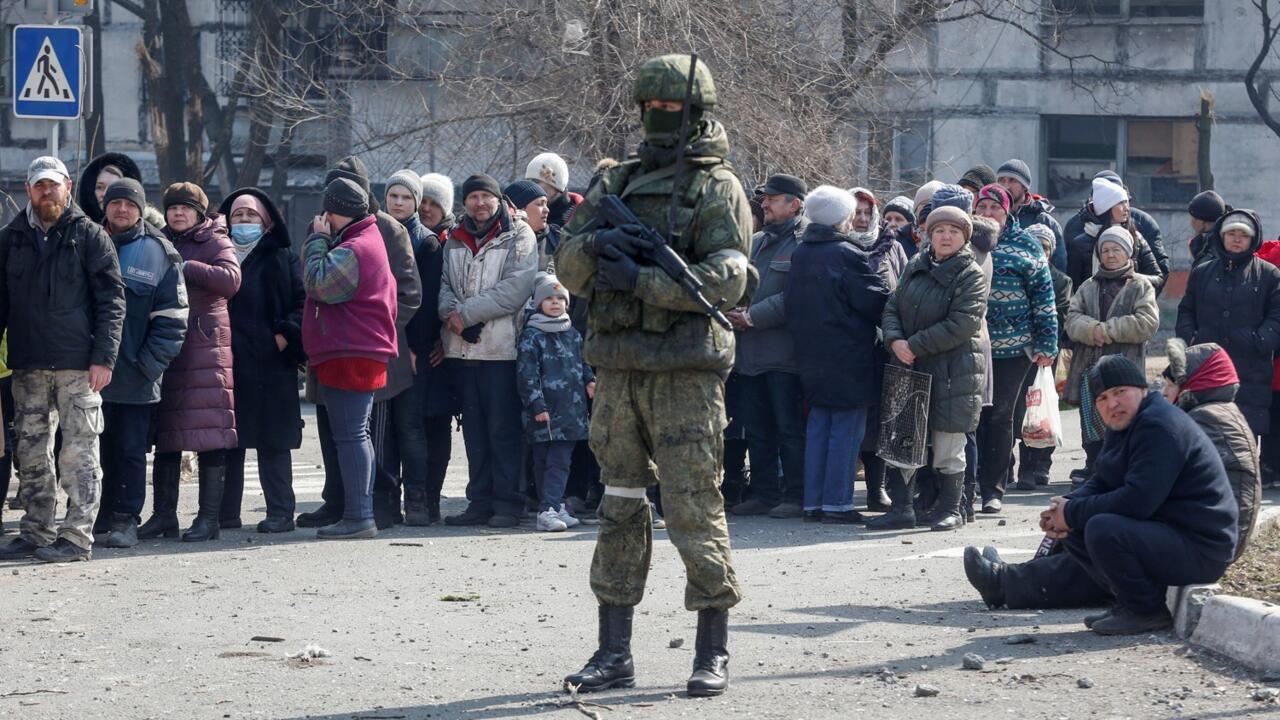Accents of Europe
Russian invasion of Ukraine brings old grudges against Moscow back to Europe
Audio 7:30 p.m.
A Russian soldier walks past residents queuing to receive humanitarian aid in the besieged city of Mariupol in eastern Ukraine.
(Illustrative image) © ALEXANDER ERMOCHENKO/REUTERS
By: Léa-Lisa Westerhoff Follow
2 mins
Since the start of the Russian invasion of Ukraine a month ago, incidents targeting the Russian community have been reported in several countries in Europe.
In Finland, the 80,000 Russian speakers who live there say they are worried, while several cases of verbal attacks have been recorded.
In Germany, there were several Russophobic incidents as well, fortunately not serious.
In Hungary and the Czech Republic, anti-Russian sentiment has roots in contemporary history.
In Prague, the war in Ukraine has thus revived old resentments vis-à-vis Moscow.
Alexis Rosenzweig's explanations in Prague.
Advertising
In Bulgaria too, the war in Ukraine is reawakening the demons of the past.
The Balkan country, which was in the close orbit of the USSR, has since the beginning of the invasion again been very torn between its historical and cultural ties with Russia and its desire to free itself from this heavy sponsorship.
Example with the debate which surrounds the communist monuments of Sofia.
What to do, for example, with the statue of the Russian soldier?
Since the invasion of Ukraine, the controversy around its unbolting has been reactivated.
Reporting by
Damian Vodenitcharov.
Another question which will soon arise in a crucial way in several European countries.
How to find work for the millions of Ukrainians who have fled their country.
In France, if we are to believe the statistics, their integration could prove to be more complicated than elsewhere.
Because according to INSEE figures in 2020, when you are a young immigrant, in France, you have half the chance of finding a job.
In an attempt to change the situation, the Duo For a Job association was created;
first in Belgium in 2013, then in Paris in 2019, and finally in Lille, last year.
Its principle: to put in contact seniors who have a good experience of the labor market and young people to help them to integrate professionally.
Lise Verbeke
went to the association's branch in Lille.
Alice Rouja
's European column
looks at the relationship between young people and the over 65s at the time of the grandpa boom.
Vincent Theval
's music column
on the long-awaited release of the Spanish singer
Rosalía's third album.
Newsletter
Receive all the international news directly in your mailbox
I subscribe
Follow all the international news by downloading the RFI application
google-play-badge_FR
Russia
Ukraine
Czech Republic
Bulgaria
France
Youth
Employment and Labor
Spain
Germany
Immigration
Refugees
Belgium
On the same subject
Poland announces expulsion of 45 Russian diplomats accused of spying
Great report
From Mikolaïv to Morvan, the first days in France of Ukrainian refugees
UK adopts controversial new reception scheme for Ukrainian refugees

